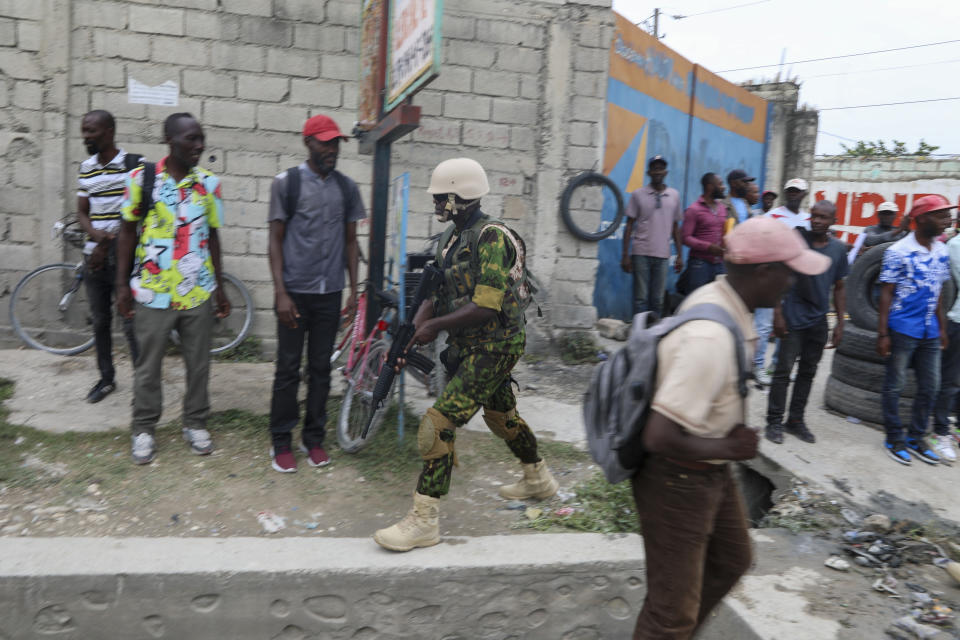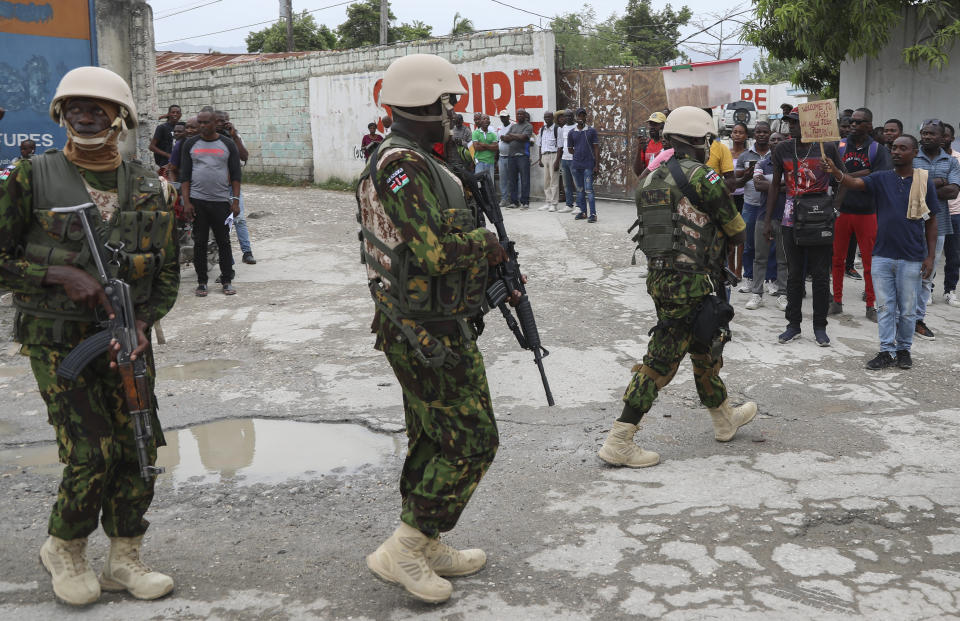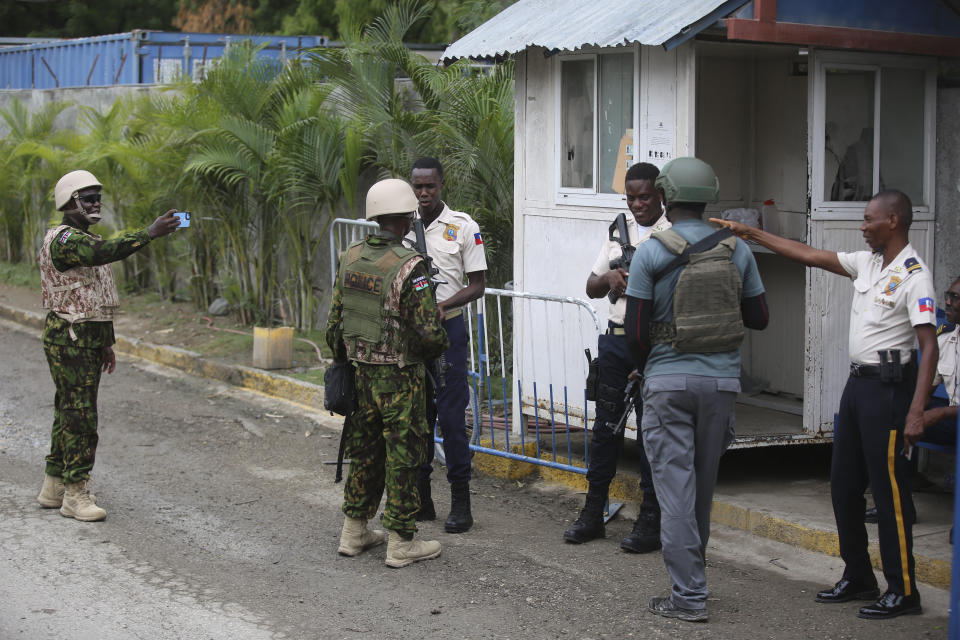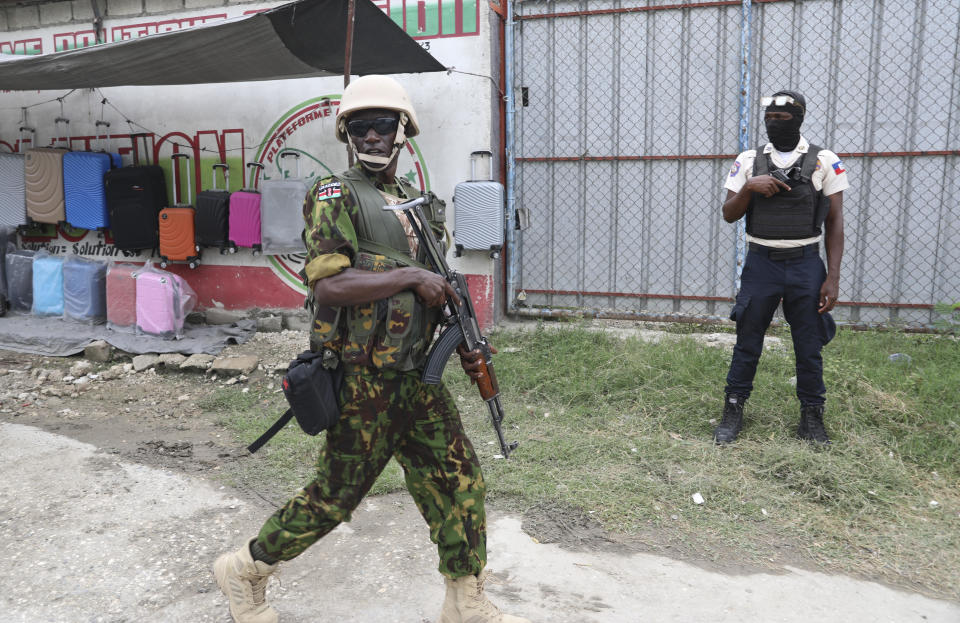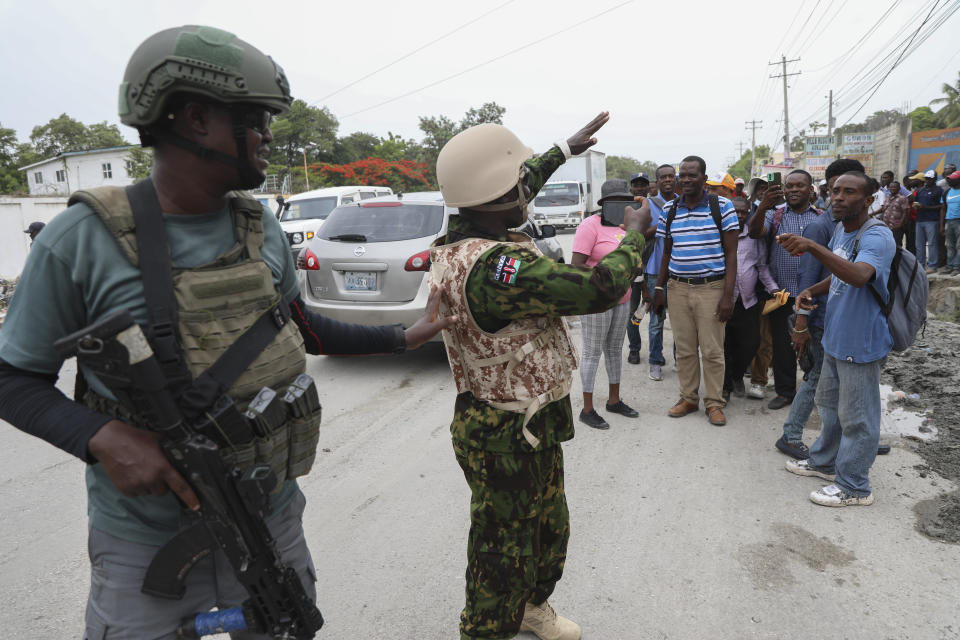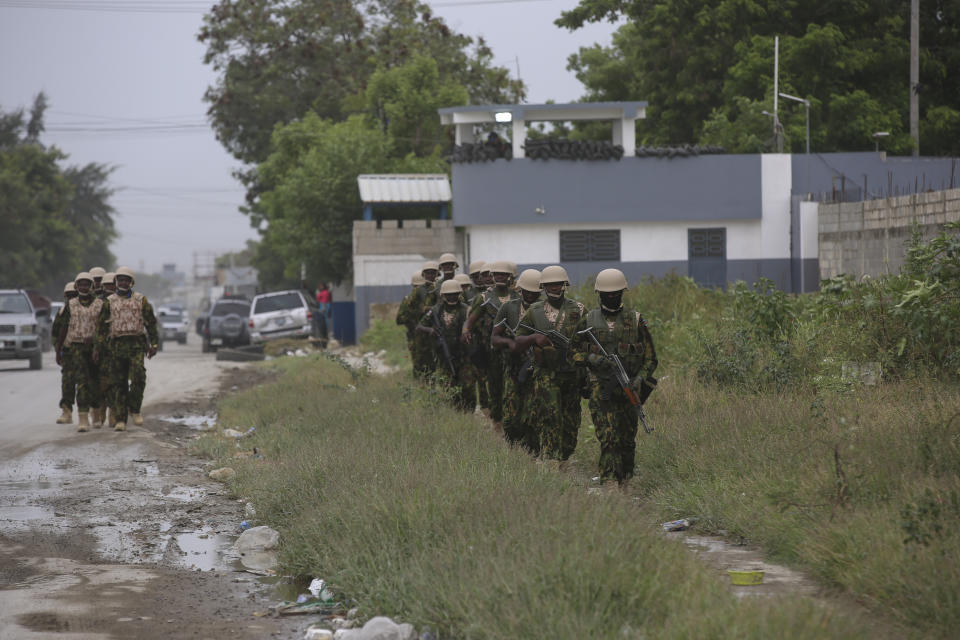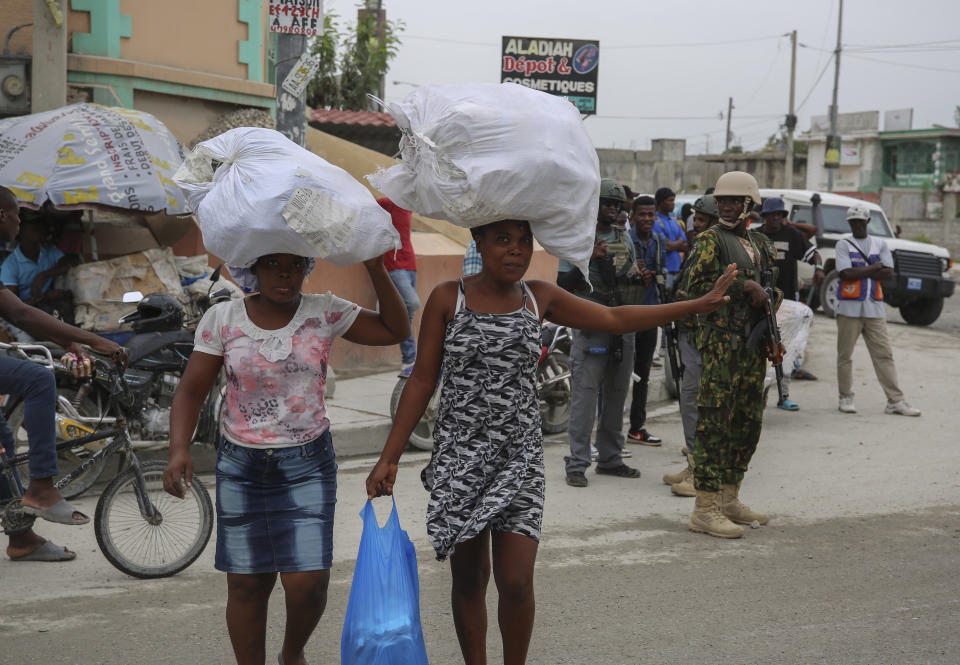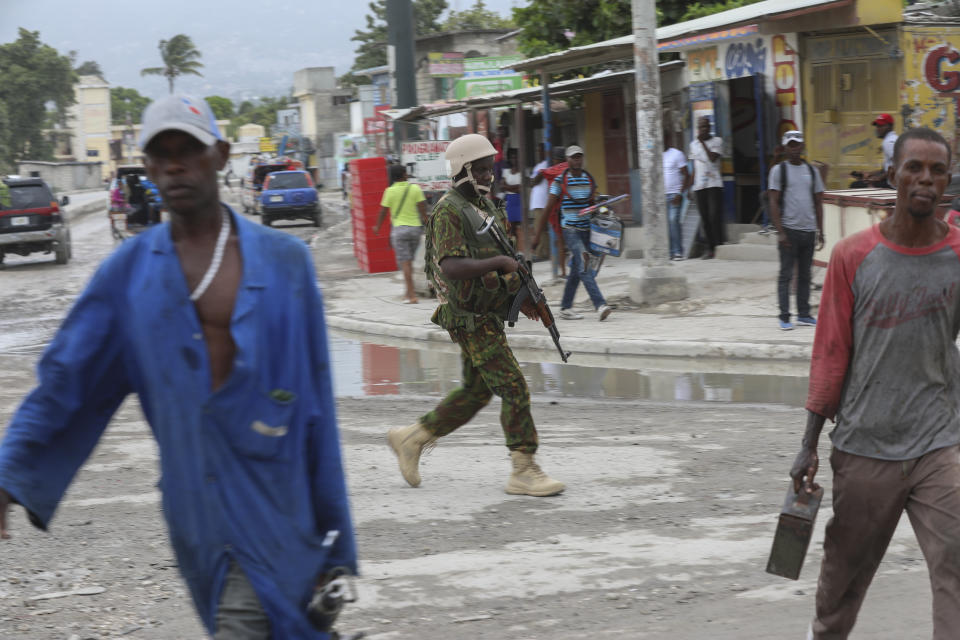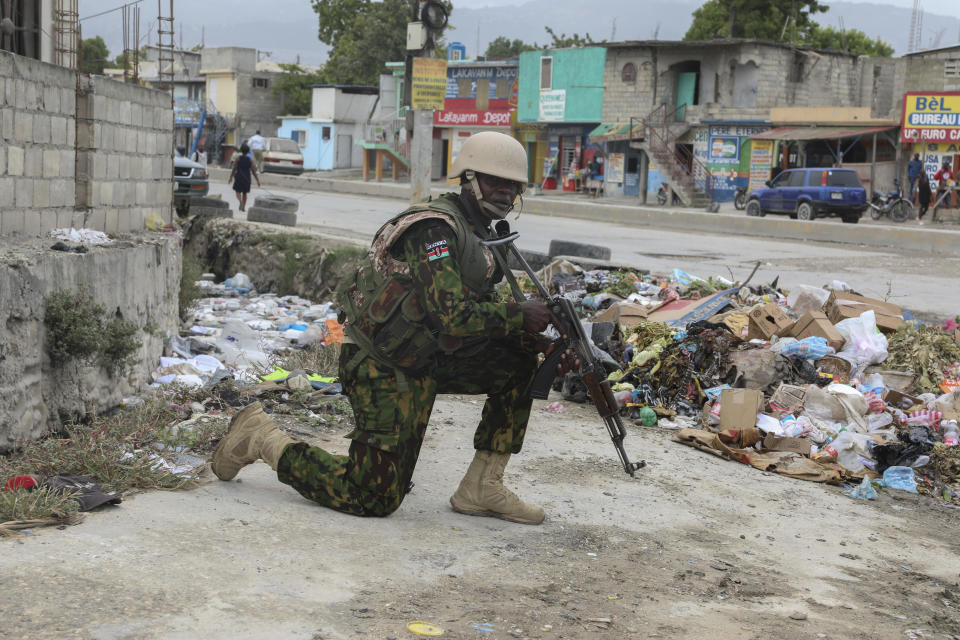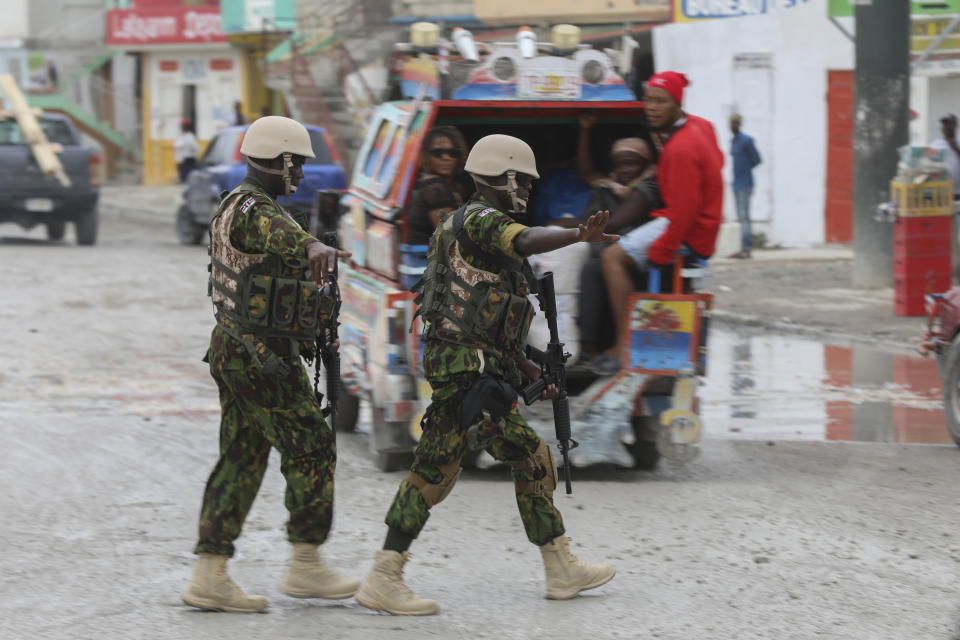Haiti's prime minister says Kenyan police are crucial to controlling gangs, early days are positive
UNITED NATIONS (AP) — Haitian Prime Minister Garry Conille told the U.N. Security Council on Wednesday that recently deployed Kenyan police will be crucial to helping control the country’s gangs and moving toward democratic elections — and he called feedback from their initial days in the capital “extremely, extremely positive.”
He said his government will focus on addressing gang violence and food insecurity, ensuring free elections through constitutional and political reform, and rebuilding public trust in the police.
On June 25, the initial contingent of 200 Kenyan police arrived in Port-au-Prince. Kenya has pledged 1,000 police to the international police force and Conille said the next contingent will be arriving “very soon.” They will later be joined by police from the Bahamas, Bangladesh, Barbados, Benin, Chad and Jamaica in the force that will total 2,500 personnel.
Haiti asked for an international force to combat gangs in 2022, and U.N. Secretary-General António Guterres appealed for months for a country to lead the force before the Kenyans came forward.
The gangs have grown in power since the July 7, 2021, assassination of President Jovenel Moïse and are now estimated to control up to 80% of the capital. The surge in killings, rapes and kidnappings has led to a violent uprising by civilian vigilante groups.
Conille, a former U.N. development specialist, took up his post as prime minister last month after being voted in by a transitional council.
With the help of the international police force, Conille is tasked with stabilizing the country in preparation for democratic elections in February 2026.
“More than ever Haiti must mobilize all the necessary and available resources to make this transition the last one, a transition that could set it on the path toward peace, security and sustainable development,” Conille told the council.
He said Haiti intends to “redefine our approaches” to build “strong and effective institutions” by the time the police leave Haiti.
Since its arrival, the Kenyan police contingent has held “operational meetings” with the national police and started “joint operations” for the mission, Kenya’s U.N. Ambassador Njambi Kinyungu said.
In February, gangs launched coordinated attacks on government infrastructure, including roads, prisons, and the Port-au-Prince airport, eventually leading Prime Minister Ariel Henry to resign in April.
The violence has resulted in the displacement of 580,000 people, more than half of whom are children, according to the U.N. children’s agency, UNICEF. The World Food Program reports that more than 4 million Haitians face food insecurity.
Conille called the country’s history of foreign intervention a “mixed bag” that has included human rights abuses and a “lack of respect for sovereignty and local culture.”
“Haiti must escape the spiral of security missions once and for all,” the prime minister said.
Conille said the international police force will require “close coordination and constant communication between all the parties involved to ensure the mistakes of the past are not repeated.”
U.N. Special Representative for Haiti María Isabel Salvador urged the international community to contribute to the fund financing the police operation.
Kenya’s Kinyungu and Foreign Minister Roberto Álvarez Gil of the Dominican Republic, which shares the island of Hispaniola with Haiti, also called for countries that have made pledges to the fund to deposit the money. Álvarez Gil said this should be done “as soon as possible.”
The United States pledged $309 million to the police mission, the largest contribution of any country. Kinyungu said Kenya is “working closely with the United States” to distribute supplies in Haiti, but the U.S. funding has not yet arrived.
At the council meeting, Russian Ambassador Vassily Nebenzia criticized the U.S. for failing to prevent arms smuggling to Haiti’s gangs.
“We do not see the current embargo doing anything to prevent the flow of arms from the U.S.,” Nebenzia said. “If it wished to do so, Washington could have long tackled this problem.”
Earlier, U.S. Ambassador Linda Thomas-Greenfield said that the United States is “concerned about the illicit flow of arms into Haiti” and is “actively working to enforce the arms embargo.”
___
Edith M. Lederer contributed to this report from the United Nations.

 Yahoo News
Yahoo News 